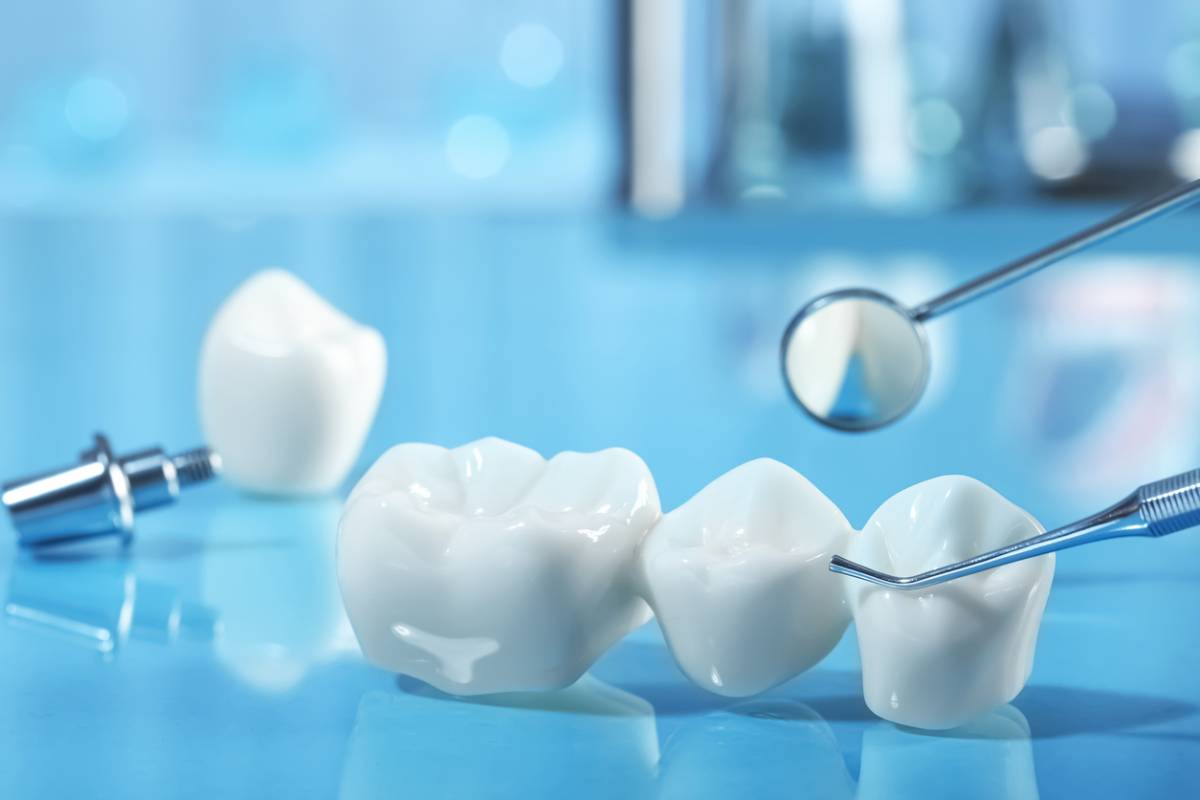Receiving dental bridges can make a world of difference for a person who is experiencing tooth loss. They allow patients to replace multiple teeth at once and restore a natural, healthy look to their smile. If you are considering the treatment, you have likely wondered, “How long will a dental bridge last?” We explain this and more about the treatment below.
How Long Will a Dental Bridge Last?
On average, a dental bridge will last 5 to 15 years. This is a significant range, but many patients fall on the longer end of this spectrum. So, why is there such a huge variety in how long a dental bridge may last? And how can you ensure your dental bridge will last longer than not?
What Determines How Long a Dental Bridge Will Last?
Multiple factors influence how long a dental bridge will last. On their own, none of these factors, except perhaps injury, will doom your bridges. Likewise, paying attention to only one aspect will not prove enough for long-lasting results. Make sure to combine efforts in all of these categories to maximize the longevity of your dental bridges.
Materials
The material used to make your dental bridge will play a role in durability. If you want the most durable material used in your dental bridges, zirconia has the longest lifetime for dental bridge materials.
However, choosing your material is not only about picking the most durable material. Other factors include cosmetic appearance and your budget. Other popular materials used to make dental bridges include:
- Porcelain
- Ceramics
- Composite resin
- Metal alloys
Maintenance
Your bridges will not get cavities like natural teeth. Nevertheless, poor oral hygiene can still shorten their lifespan. From day one, you must employ excellent oral health habits that include attentive care for your bridges.
Fortunately, dental bridge maintenance looks almost identical to dental maintenance for your natural teeth. Brush away food debris, floss between the teeth, and visit your dentist every 6 months. Tooth decay and gum disease can dramatically alter your mouth’s environment. In turn, this can lead to increased wear on your bridges.
Diet
Dental bridges can withstand the pressure of most food items, but we recommend you avoid chewing anything exceptionally hard. Things that may put a strain on your bridges include items like hard candies, sticky (or tacky) foods, and chewy meat. Stay away from these foods and anything else your dentist recommends avoiding.
Additionally, you should consider cutting out or limiting sugary or acidic foods in your diet for the sake of your dental bridges. If you worry about stains, limit your intake of tea, coffee, and wine.
Accidents and Injuries
Physical trauma from sports injuries can make your dental bridges immediately unusable, so you should be very careful to avoid such injuries. This does not mean you need to totally abstain from athletic activity, but you should at least wear a mouthguard when engaging in activities that could damage your teeth.
Bridge Placement
Unfortunately, bridge placement is out of your control, but if you seek out an experienced dentist to place your dental bridge, they will have no issue placing it. A less experienced dentist, on the other hand, may have a harder time placing your bridge. The process is complex and involves multiple steps, so you need to find a dentist who can complete the procedure with an expert hand.
Bridge Type
Different types of dental bridges can provide different degrees of support. The stability of a bridge will influence how long it lasts before needing maintenance. For example, traditional bridges provide more support than cantilever bridges and typically have a longer lifespan.
When discussing your bridge options, your dentist should walk you through the advantages and limitations of each type. Sometimes, durability may need to come at the cost of other features that you need more.
Bruxism
If you consistently grind your teeth, you will wear down your bridges more quickly and develop more severe problems with your jaw. For the sake of your bridges and overall health, you should pursue treatment for your teeth grinding. Common treatments for teeth grinding include:
- Therapy to relieve stress
- Night guards to wear at night
- Treating conditions that cause grinding
What Happens When Your Bridges Wear Out?
When your dental bridges begin to wear down, you will see their appearance deteriorate, but the extent of their damage will likely only be noticeable with a professional exam.
For this reason, you will need to continue your twice-yearly visits to the dentist. Your dentist will be able to keep an eye on the quality of your bridges and spot early signs of wear. If bridges become too worn out, they may eventually shift, break, or cause more severe issues. Replace them before this happens to save yourself the hassle. When you replace bridges, it can refresh your smile and return stability to that portion of the jaw.
A Trusted Local Source for Dental Bridges
At My Dentist Anaheim, we have been restoring missing teeth for years. As a local dentist, Dr. Patel is passionate about helping patients with tooth loss find personalized solutions.

